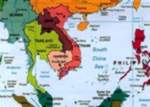

As she pointed out, “every profession in the field of a particular investment should be brought on board to guarantee that the right thing is done to save cost.”
“Mass sale and purchase of land without adherence to approved planning schemes, conversion of the land use status of existing developments and the organization of some sorts of educational programmes are but a few to the responses,” she added.
In an article written by Geoff Zeiss entitled ‘Quantifying the Business Benefits of Open Geospatial Standards‘ attention is directed to the role standards play in geospatial related work and the business benefits involved. Cameron Shorter of New Zealand has written on the topic of ‘How to explain the business benefits of Open Source for Government.” Geographic information systems (GIS) professionals have written on the benefits of GIS as well. ‘The Business Benefits of GIS: An ROI Approach‘ explains in a step-by-step manner, how GIS is adding benefits to organisations. ERDAS has been working on building Geoportals with ERDAS APOLLO that integrate a wide range of technologies that integrate and process geospatial information, delivering higher rates of return on investment. It has been noted that Pakistan, for example, benefits across it’s IT sector through the integration of remote sensing technologies and the image analysis performed through automation.
Saving cost is one of the strongest arguments for putting forth a geospatial technology proposal. There are many examples where this has taken place due to increased efficiency in managing geospatial data, streamlining of services, improved results and overall better performance.
But other benefits are not as apparent, at least not at first sight. Considerable cost benefits can be reailised through ‘ecological services’ that attempt to understand and management all resources within a wider systems approach. While land administration systems are necessary for proper benefits to be measured and identified, the benefits arising through intangible gains can be significant and need attention as well.
